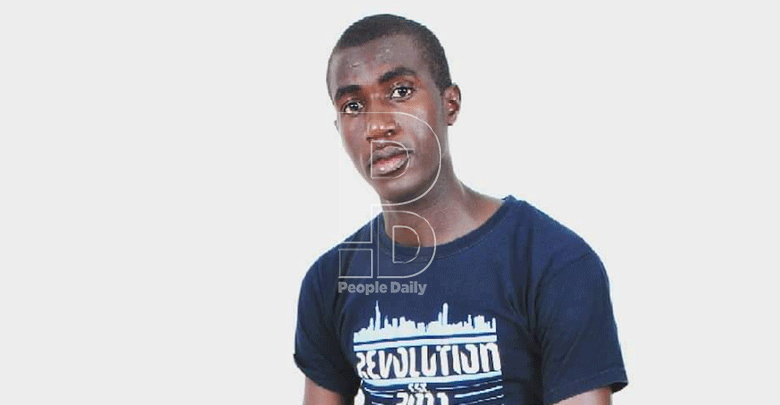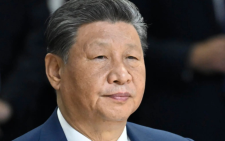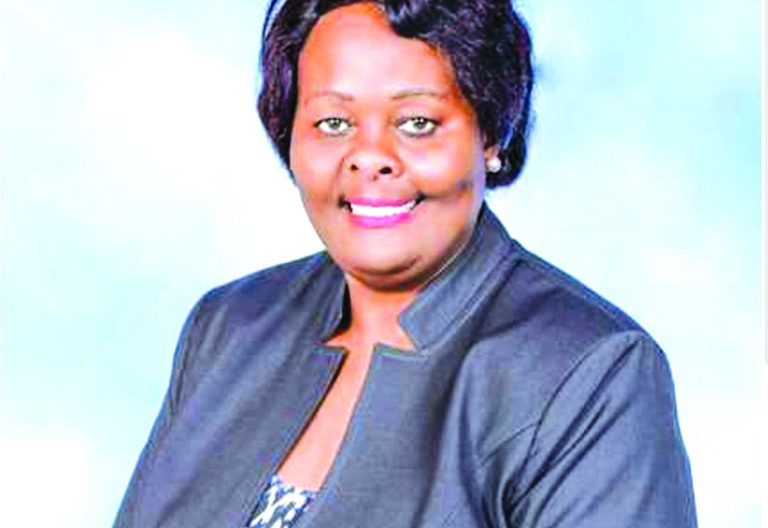Meet Stephen Okinyi aka Steve Mang’ana, 25, is a rising gospel singer and police officer with a difference

How and when did you develop a love for music?
I was born a singer, that’s what I believe. I started singing in church at a younger age and at some point I was a choir trainer in the church and even at the Seventh Day Adventist chapel at the Kenya Police Training College in Kiganjo, Nyeri.
But I recorded my first song titled Hakuna Furaha in 2013 while still in secondary school.
What inspired you towards the art?
I was brought up in church where I acquired a lot of inspiration from the study of the Bible, the situations around me and generally the things happening in the society.
These ignited a fire in me that directed me into singing. I picked it up and have never looked back.
My music is a calling and I don’t need to strain to copy from anyone; I deliver it as have been gifted to me by God.
Having made the decision to be an artiste, did your family support you?
Initially, the family just saw me as a lover of music. They never expected that I would become a singer.
So, when I came up with the idea of becoming a professional singer while in Form Two, they didn’t like it because they expected me to become something better than “just a musician”.
The fact that they were not strictly objected to the idea energised me to keep going for what I loved.
It was until I started appearing on the TV and radios that they started realising it’s value.
How has it been pursuing music as a profession?
Though I started recording in 2013, I only engaged in serious music commitments in 2017 after I became a police officer.
And just the way I serve people in the police service with dedication, so must I serve God. It has been an amazing experience thus far. No regrets whatsoever.
As a rising artiste, what challenges do you face and how do you overcome them, especially being in the police service?
In music, challenges are so many; first among them, the finances. To do good and quality music, you really need to invest quite a good amount of money. Good music doesn’t come cheap.
Secondly, you must have an elaborate marketing strategy; where lack of it would limit your market penetration.
Also, having adequate time to have the music reach to the masses in good time is also challenging as the police work is tasking and demands a lot of time commitment.
But I always do everything in its right time. I don’t force or pressure myself on anything, no matter how long the process would take.
So, what are some of your projects?
I have done many songs that can be accessed on YouTube. Among them are Amani Kenya, which I released last year as part of my peace initiatives, Kampuni (2019), Telna (2020), Love Letter (2017) and Aluongo Yesu and Mungu Pekee in 2021.
How do you balance your work as a police officer and music?
Both police work and music ministry need a lot of time, and sometimes it becomes very tiresome.
So, all I do is just pray and let God do His part, and with prayers all has been well without a lot of straining.
Police service and music are two parallel fields. I have never mixed both because I would never want any conflict between the two.
Many people have varied views towards the police. What are you doing as an artiste to change the negative perspectives?
A lot of people think negatively about police. But the fact of the matter is that you’ll always find good people and bad people in every place you go.
Even in the church, you will still find good and bad pastors. So, the police service is not an exception.
But it has never been fair to generalise all police officer and picture them in one bad light.
Who are your music idols?
I love how Guardian Angel and Solomon Mukubwa sing. They inspire and encourage me to never let my talent go. Janet Otieno and Eunice Njeri are also true gospel ministers that are worth emulating.
Your last word…
I’d just urge Kenyans to embrace peace, love and unity at all times. We are not slaves of hatred as expressed in my song Amani Kenya.












